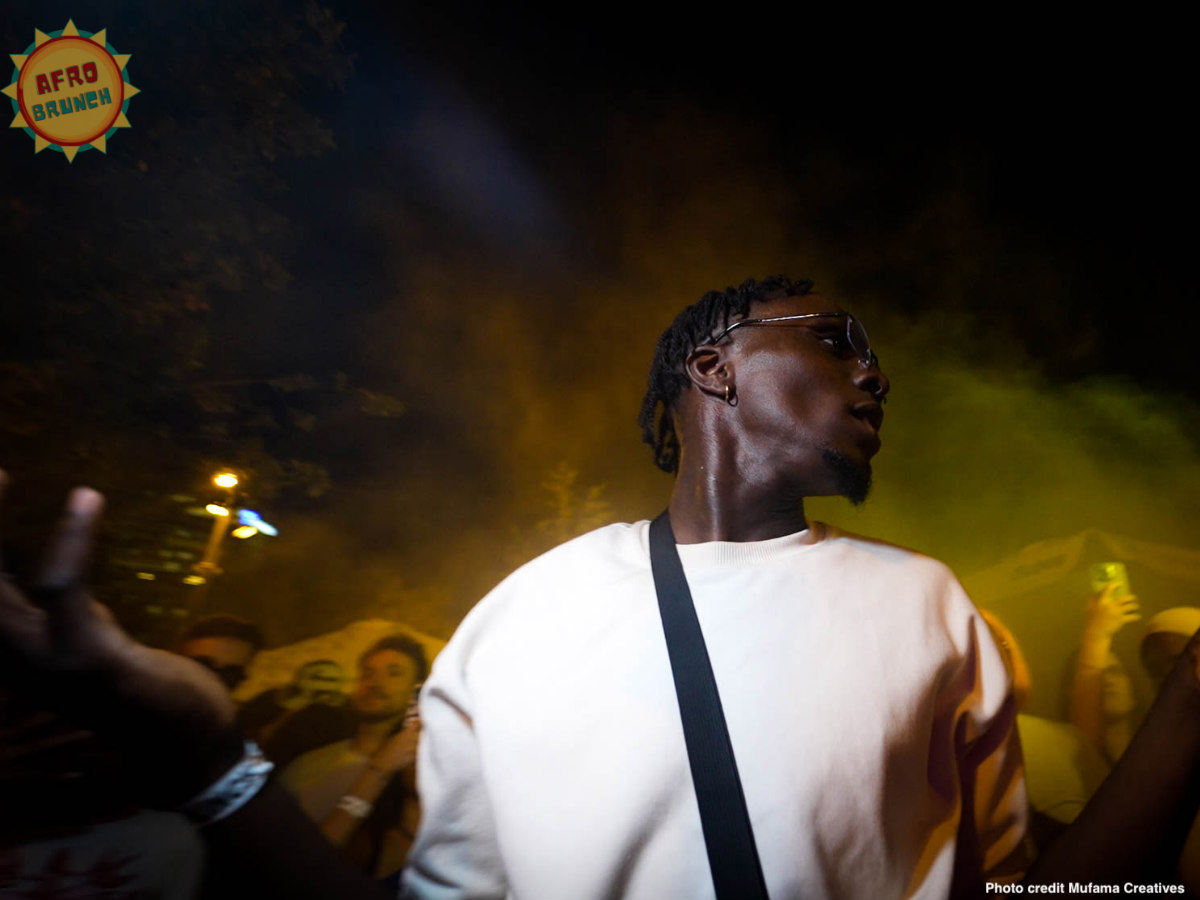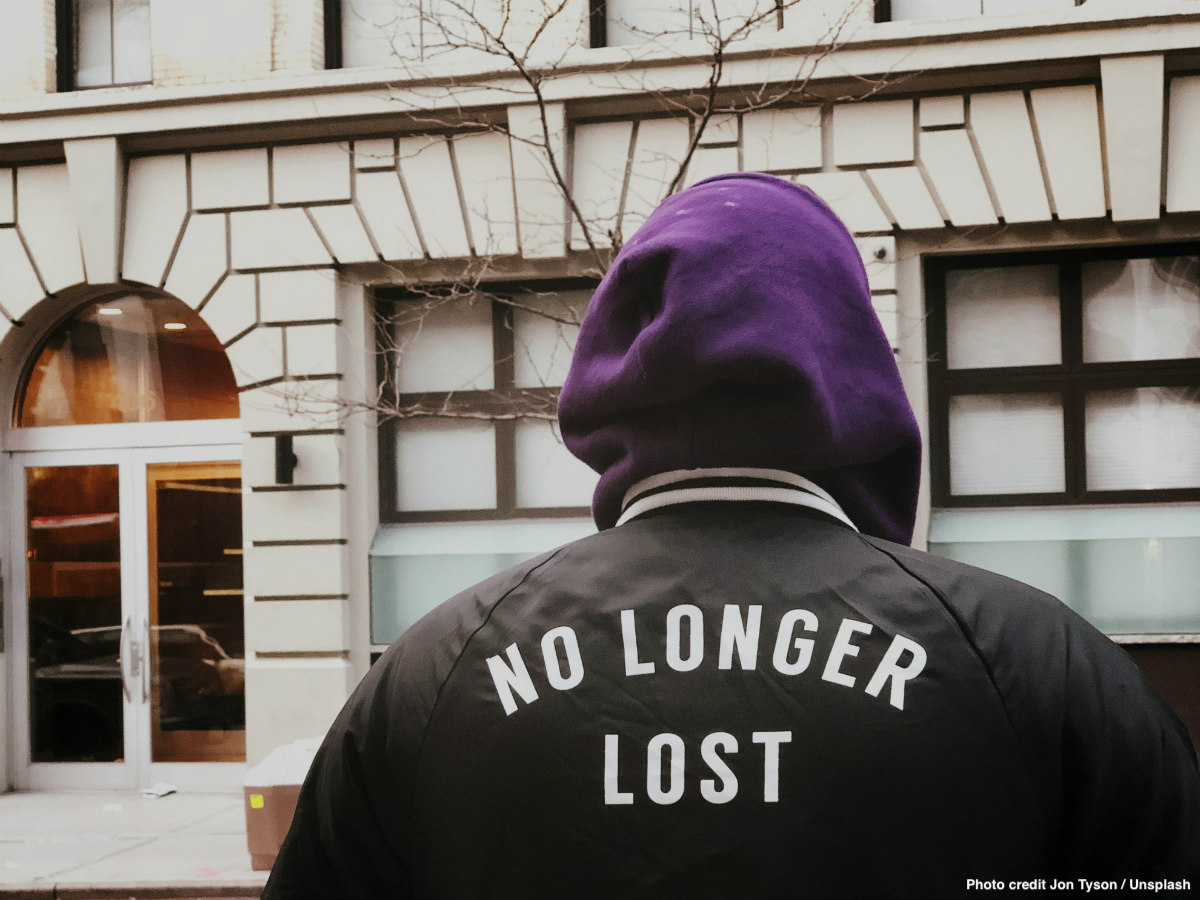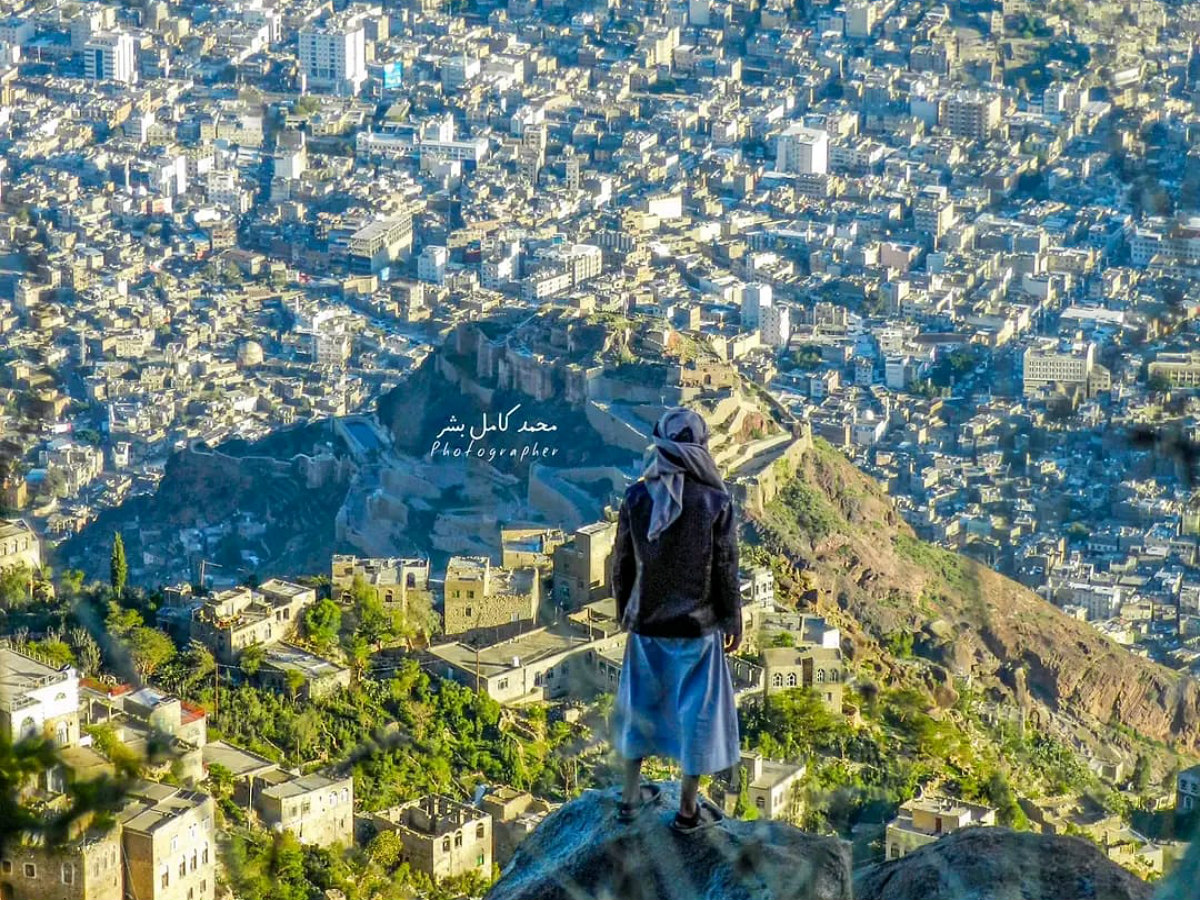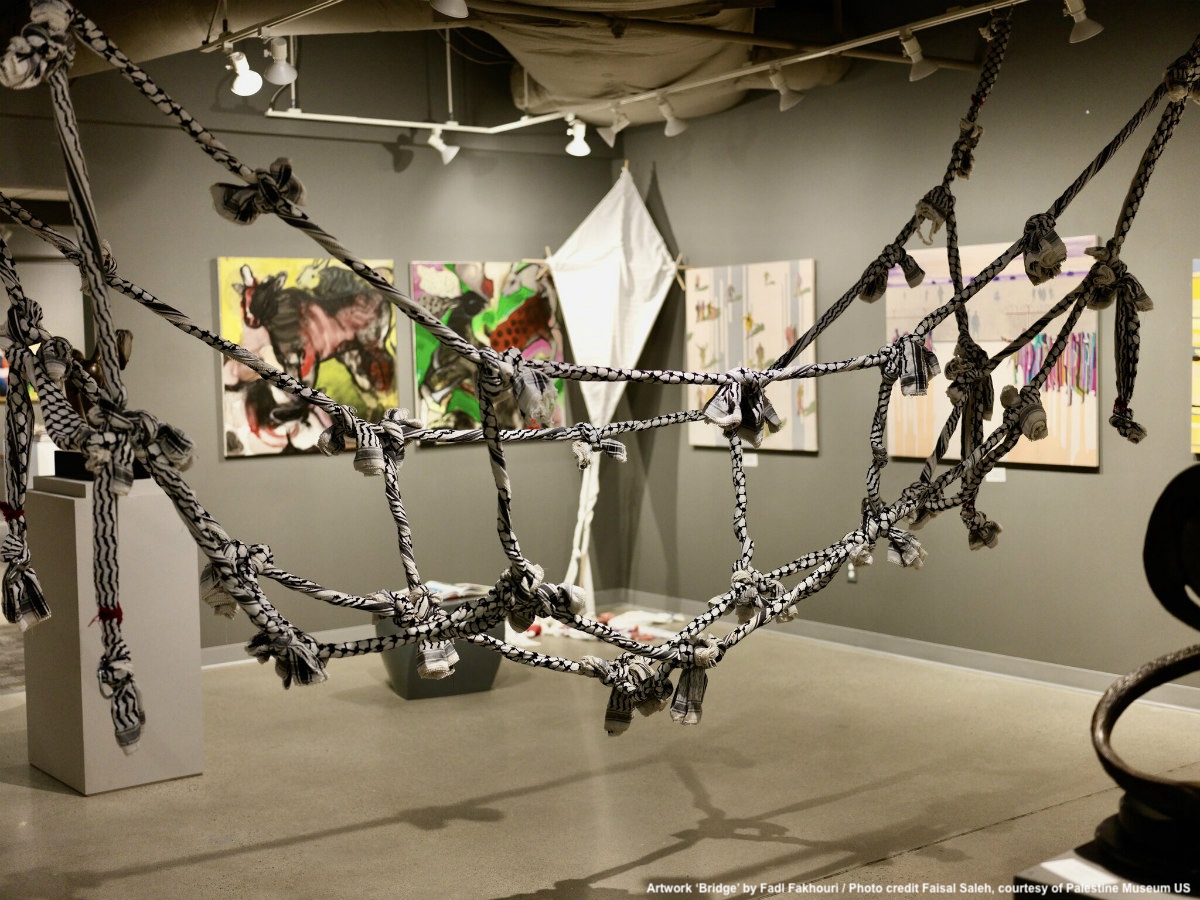Nobody would be able to think that you are in Barcelona when you step into Afro Brunch. When I first heard about it, its symbolism was hard for me to miss. Far from viewing Afro Brunch as a music event, it is the African culture of a new generation of people that is emerging to the surface in Barcelona, and elsewhere in Spain.
As Dani, as he prefers me to call him, sells out venues, Afro Brunch has morphed over one year from an Afrobeats music scene to a symbol of hope and means of expression for African culture — in 2021 the census recorded a total of roughly over one million African residents in Spain, and 182 thousand in Barcelona, the city with the highest number.
It is late afternoon and I have just arrived in Barcelona. I meet Dani at a fancy restaurant club by the beach; from the terrace I can see the shining structure of Frank Gehry’s copper fish. Dani looks tired but energized by last night’s Afro Brunch at this very same location. People greet him intermittently, at first chance he introduces me to Mufama, who records the Afro Brunch in pictures and produces the videos. His parents are from Morocco. Like Dani, who has North African heritage, they are part of an African diaspora that came to Spain two generations ago.
“Yet people from African culture are mostly seen in Spain as the ones who come in ‘patera’ and sell illegally on the streets. And nobody would have ever thought that they could have another education and skills, and selling on the street is just a way to survive,” says Dani. People don’t think of the Black doctor, the Black student, the Black artist. One of Mufama’s videos for Afro Brunch breaks with this stereotype. The barista, the office manager, they all get ready for the Afro Brunch, and at the end somebody asks a guy at the counter, “are you not the one presenting at the Afro Brunch? Yes, how do you know? because I’ve just seen it, but this is starting now, right? The guy rushes while calling Dani, he is the humorist wizproblema with over 79 thousand followers on Instagram.
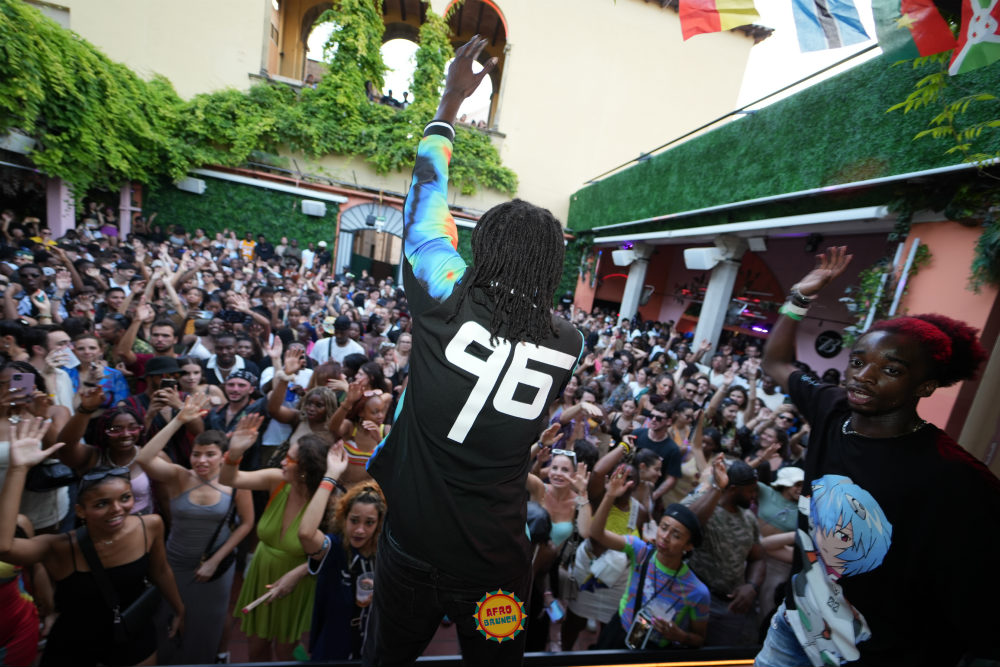
Dani is a professional soccer player in the third league. After a back injury, he started taking Afro dancing lessons with his friend Tommy to recover. They knew each other from the time Dani played with the soccer team in Almeria – the fourth Spanish city with the highest number of African residents. It was then that he began listening to “their music,” referring to Afrobeats, a music genre rapidly spreading from Nigeria and Ghana to the rest of the world. As Reggaeton did fifteen years ago, Afrobeats has become one of the most significant music trends of recent times.
Long ago Dani played with the idea of creating Afro Brunch because he saw the need to create a safe space to gather with his friends and celebrate their culture in Barcelona. Before the Covid-19 pandemic he made many failed attempts. He tried the best venues of Barcelona, why should they deserve less?, but “The venue owners turned me down, without telling me the reason,” although it was obvious for Dani, judging by the questions they asked him, that some had already preconceived ideas about Africans.
In September 2022 the owners of a cool new venue whose construction Dani used to observe while practicing Afro dance in the Forum park in Barcelona, agreed to Afro Brunch. On October 9th he sold out the first event. One of the paradoxes, Dani tells me, is that “I mostly created Afro Brunch as a gathering space where I could go with my friends to experience African music. However, Afro Brunch turned out to be a place where you could go alone, and yet you would have the greatest time of your life.” And most importantly, as this Afrobeats scene emerged, Afro Brunch has managed to create a feeling of reconnection of peers who have previously felt lost in Barcelona, with their African culture, and finally find a place to blend their African identity with a new cultural pride in Spain.
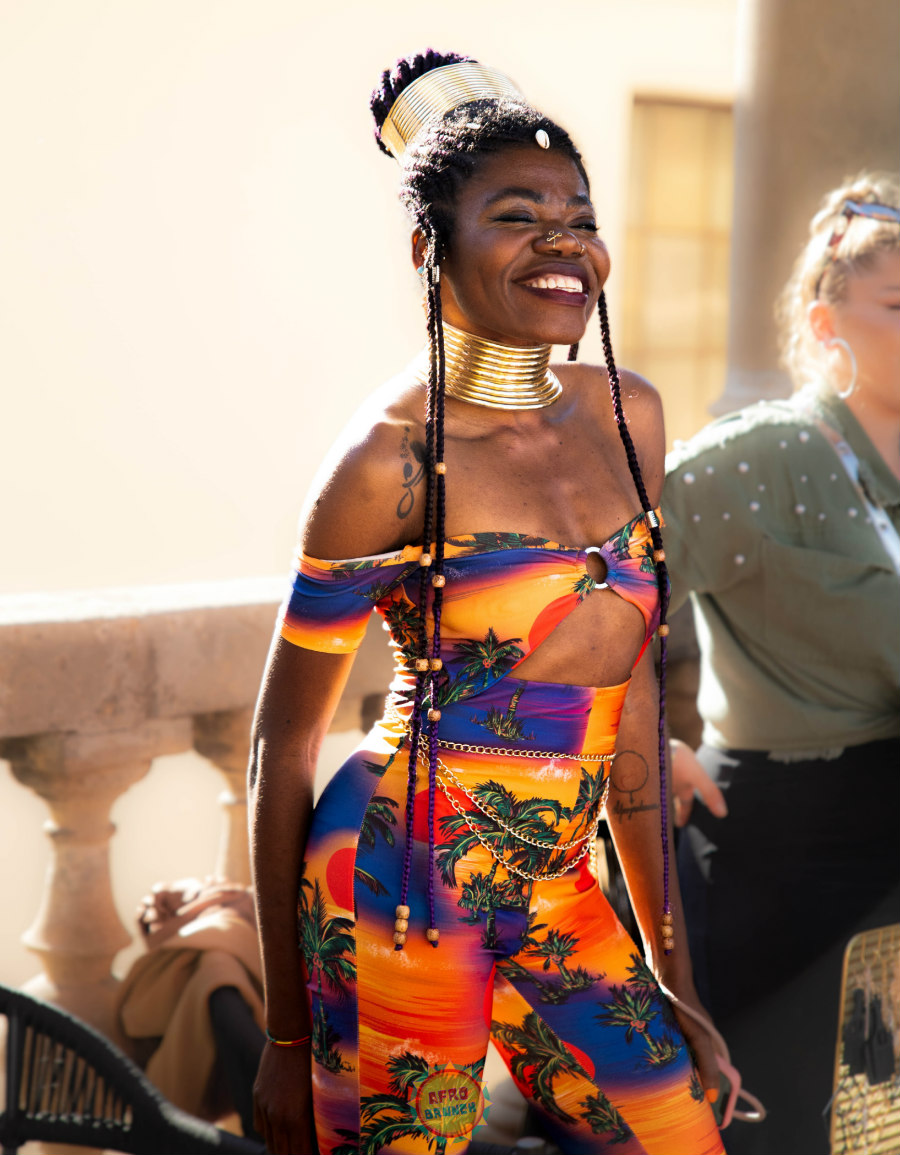
At Afro Brunch people are close, the mood is familiar. For an entrance fee of 20 Euros, you get access, an African drink and a plate of food. “A menu reservation with live music,” as Dani puts it, to smartly circumvent a law that wouldn’t have granted permission for a live music event at the first venue. When the music starts playing, people dance to exhaustion.
“The concept of partying is very different to what you see in mainstream Barcelona. Africans dance in such a way that it is useless to hold a drink in your hand,” says Dani with a smile. And he continues explaining how the idea of drinking to have a good time is a consequence of colonization. “Surely alcohol was already used by native populations, but it was rather attributed to healers and shamans,” he says.
From what I have heard, it seems that the energy of the event is enough dope. Barcelonians feel themselves and have a good time, knowing that no one is going to judge them.
Since the first events at the Forum park, Afro Brunch has moved to bigger places in Barcelona like the modernist train station ‘Estació de França’ that hosted 800 people and the beach club where we meet for our chat. “In the first event, 99% were with African roots, the rest European, white Caucasian. But this has been gradually changing to the point that “We went from being an event educating not only culturally but socially,” says Dani.
Afro Brunch is playing its part in societal issues by addressing narratives around immigration and integration. Although there is no consensus on what the word integration means in terms of inclusion of migrants in cities, Dani thinks most people see it as a one-way process of adaptation. The newcomer needs to understand customs and traditions in the host country, but what about the locals understanding and experiencing the culture of the people who choose their country for a better life?
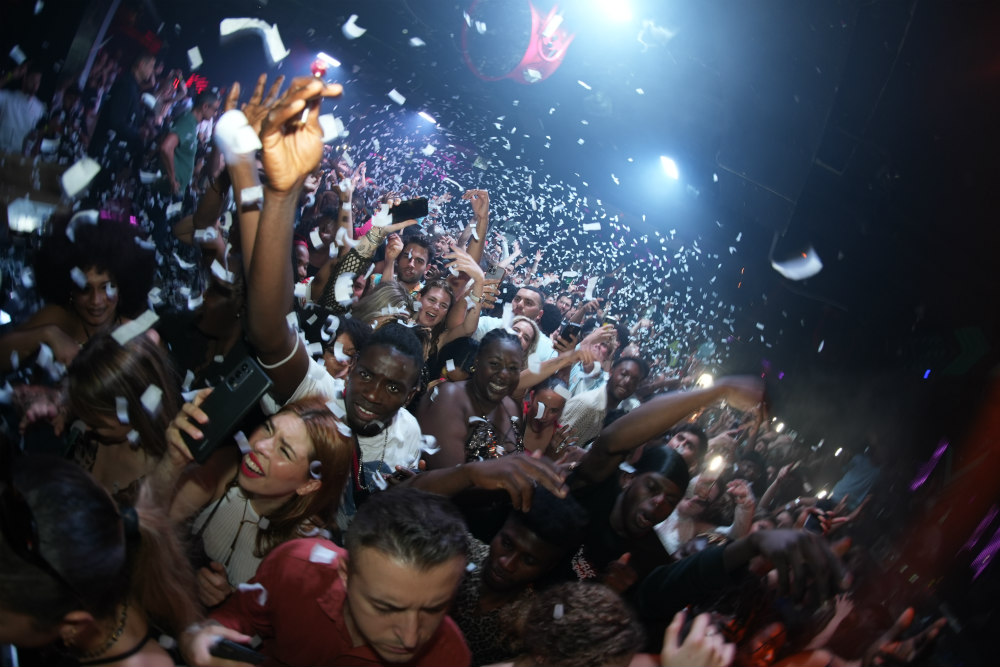
We agree that there are many stereotypes that need to be dismantled as Top Manta is also already doing in Barcelona. For instance, the Brit, the American or the Swedish who live in Barcelona or another European city and do not speak the local language, are not seen as migrants. The young boy, who has African roots, but speaks fluent Catalan or Spanish, and in some cases was even born in Barcelona, is a migrant in many people’s eyes.
To be clear and fair, says Dani, “The venue’s owners, who rejected the Afro Brunch, didn’t discriminate against it because of the color of people’s skin. The reason was racism not racial discrimination. I believe 99% of the owners who rejected the event would have accepted it, if they had grown up thinking that Black people in Spain are wealthy, instead of seeing the African as the “mantero” who doesn’t have a penny.”
“Honestly, I don’t think I have been the only one to come up with something like Afro Brunch. In fact, there are many black owners of venues, in particular one began to organize night Afrobeats events seven years ago, but lost its essence and disconnected from the people. And many others saw the need to create something like Afro Brunch, but I guess they went through the same amount of rejections and gave up.”
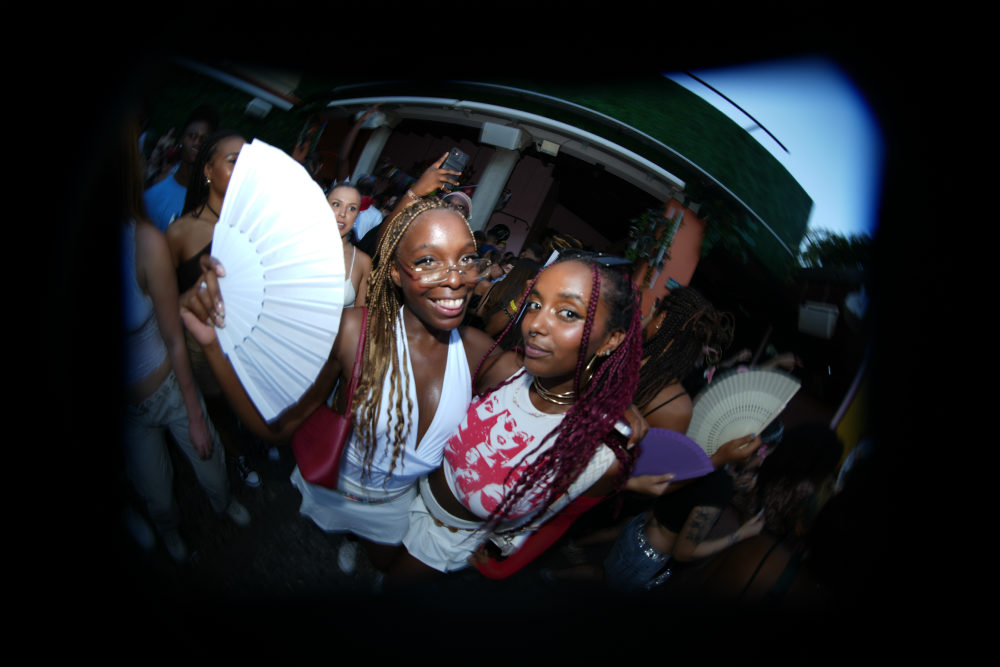
And he adds, “I have sometimes been racist myself without realizing it because we have grown up in a racist system, therefore I can’t blame the owners of the venues. Sometimes I have even been racist with my lifelong friends because if one told me that his girlfriend left him, I would tell him that this is nothing compared to what he has been going through, without taking his emotions into account. Instead I should listen to him because he has emotions which have nothing to do with life experience.”
I am truly amazed by Dani’s endurance to amplify the African culture in Spain and wake us up to a young continent with so much life and spirit. He tells me about other plans he has like organizing an African Nations Cup soccer tournament in Barcelona. Now I can hear the soccer player in him. Sports are certainly a great way to break down cultural barriers.
So far Afro Brunch has painstakingly crossed over to the mainstream venues in Barcelona, expanding to Madrid and Almeria. The event has also been embraced by some of the big Afrobeats pop stars. Awareness of the African culture in Spain, says Dani, “can be promoted but it cannot be accelerated, Afro Brunch is helping in that process. Not the DJs, and not the artists, let the public be the protagonist.”
